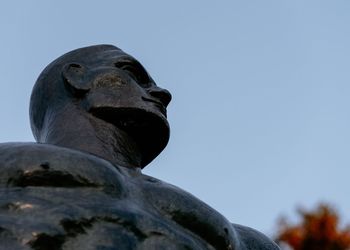Poetry Allowed Alumna to Take Charge of Her Future

Poetry Allowed Alumna to Take Charge of Her Future
Poetry as prescription, Leila Chatti uses poetry to navigate illness, mortality and shame.
May 18, 2021Leila Chatti does not hesitate to call 2015 the worst year of her life. Facing a rare illness that brought incessant pain and menstrual bleeding, Chatti felt ostracized and punished, angry and abandoned.
Poetry provided a necessary escape. As she penned verses about dealing with taboos around womanhood, spirituality and illness, Chatti gained context and calm. The creative flurry sparked perspective and purpose, as well as “Deluge,” Chatti’s critically acclaimed debut book.
“Poetry allowed me to be in charge,” Chatti said. “Writing helped me diffuse the immediate pressure I was feeling so I could move forward.”
A poet’s roots
Chatti grew up in East Lansing, the daughter of a Catholic mother from metro Detroit and a Tunisian-born Muslim father, Karim Chatti, a civil engineering professor at MSU. As a child, she embraced her faith and writing, finding an inspiring blend of both in Koranic recitations.
“I saw that musical language could be important and sacred,” Chatti said.
Though displaying an early aptitude for writing—she won elementary school writing contests and gained publication in high school and college literary journals—Chatti considered poetry a hobby, not a legitimate professional pursuit. She envisioned a career teaching English abroad, activating the first steps toward that plan by joining Teach for America upon graduating from MSU’s Residential College in the Arts and Humanities in 2011.
“As the oldest child, I felt pressure to get on with life and a career,” she said.
As Chatti immersed herself in a special education classroom in Oakland, California, she tabled her writing pursuits, a seemingly rational, adult decision. In silencing her muse, however, Chatti increasingly felt empty and incomplete. She joined a Bay Area writing group, and as she penned verse about navigating the world as a young adult, exploring concepts such as identity and place, spirituality and relationships, her energy climbed.
“I write because I have questions and I’m trying to understand something I have experienced,” she said. “My impulse is always to examine and understand.”
Yet Chatti began to discover more career possibilities in writing. She applied for MFA programs and embraced the energizing possibilities materializing before her.
“I couldn’t have been more excited,” she said.
A turning point
Then, the bleeding started. The pain followed. When doctors discovered a massive tumor on Chatti’s uterus, they feared it was a potentially untreatable, aggressive cancer that might end her life within two years.
As Chatti, then 22, began her tour of doctors’ offices, the pain and bleeding, often sudden and overwhelming, persisted. She felt physically weak and embarrassed. She thought God had cursed her.
“I had a lot of shame and there were dark times,” Chatti said.
Poetry offered solace, a break from the weighty emotions consuming her mind and soul. Whenever she felt frozen in trauma or fear, she responded with raw, reactionary verse. Poetry served as a prescription for the pain.
“It was satisfying emotionally to put something down, but also satisfying intellectually to wrangle a heavy feeling into language,” she said.
Chatti feverishly submitted her poetry to journals and contests. Though afraid that writing about her illness—and menstruation, specifically—would be limiting and too graphic, she instead found awards, grants and publication. One poem, “Confession,” earned Chatti the Emerging Writer’s Prize from Ploughshares, one of the nation’s premier literary journals.
Creativity as cure
Chatti’s prolific work spurred “Deluge,” her 52-poem book that begins with “Confession” and twists through faith, womanhood and illness. Each poem, up until the last, proved therapeutic.
“When I reached the final word and hit the period, knowing I was done, it felt like something had left me and pushed me away,” Chatti said. “I had gotten used to this high-intensity stress, but then the clarity was also intense.”
Since its 2020 release, “Deluge” has earned widespread praise for its candid storytelling and vivid language. The New York Times called the collection “a bracing accomplishment,” while Publishers Weekly labeled it an “unflinching debut” that “translates a gritty, traumatizing experience into a hypnotic, transcendental topography of the human spirit.”
“I’m grateful for the reception ‘Deluge’ has received, but I also know that chapter is safe and done for me,” Chatti said. “I couldn’t write that book again if I tried.”
Indeed, Chatti inhabits a different space now. Healthier—the tumor on her uterus was benign and was removed in March 2015—Chatti celebrated her 30th birthday last year and is now pursuing her Ph.D. in creative writing at the University of Cincinnati while also serving as the Mendota Lecturer in Poetry at the University of Wisconsin. Her muse remains active, propelling her work on two full-length books as well as chapbooks.
“For me, writing is like putting my feelings in a jar so I don’t have to hold the memories anymore,” Chatti said. “The feelings aren’t gone, but they are not weighing me down, either, and that is a real gift.”








